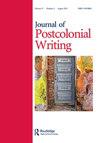混合的味道:后殖民文学对烹饪作为女性化克里奥尔模式的描述
IF 0.4
3区 文学
0 LITERATURE
引用次数: 0
摘要
本文章由计算机程序翻译,如有差异,请以英文原文为准。
The flavours of mixing: Postcolonial literary representations of cooking as a feminine mode of creolization
ABSTRACT This article examines the place of food and cooking in Caribbean women’s postcolonial writings, and concentrates on the works of two women authors of Caribbean origins: Jean Rhys and Olive Senior. It explores how the representations of cooking and culinary traditions help us to rethink the process of creolization from a feminine perspective. Creolization is a process of cultural encounter and mixing that is central to the understanding of Caribbean identities. However, the theories of creolization have often omitted the role that women play in this process. This article focuses on cooking, an activity usually conceived as feminine and shows how it participates in the opposition to the continuation of racial, social, and sexual domination resulting from colonization. It demonstrates how the two selected authors tackle the topic of cooking, and how they rehabilitate this activity as an art and as a key element in the transmission of creolized cultures.
求助全文
通过发布文献求助,成功后即可免费获取论文全文。
去求助
来源期刊

Journal of Postcolonial Writing
LITERATURE-
CiteScore
0.80
自引率
0.00%
发文量
73
期刊介绍:
The Journal of Postcolonial Writing is an academic journal devoted to the study of literary and cultural texts produced in various postcolonial locations around the world. It explores the interface between postcolonial writing, postcolonial and related critical theories, and the economic, political and cultural forces that shape contemporary global developments. In addition to criticism focused on literary fiction, drama and poetry, we publish theoretically-informed articles on a variety of genres and media, including film, performance and other cultural practices, which address issues of relevance to postcolonial studies. In particular we seek to promote diasporic voices, as well as creative and critical texts from various national or global margins.
 求助内容:
求助内容: 应助结果提醒方式:
应助结果提醒方式:


